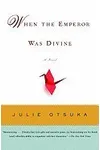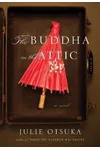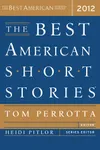Picture a Japanese-American storyteller who turned her family’s hidden history into lyrical, unforgettable novels—meet Julie Otsuka! Born in 1962, this former painter traded her canvas for prose, crafting stories that illuminate the Japanese-American experience with grace and power. Her award-winning works, like When the Emperor Was Divine, have captivated readers worldwide, blending vivid imagery with profound themes of identity and resilience.
The Making of Julie Otsuka
Julie Otsuka was born on May 15, 1962, in Palo Alto, California, to Japanese-American parents—an issei father and a nisei mother. Raised in California, she moved to Palos Verdes at nine, growing up with two brothers, one now a professor at the London School of Economics. Initially drawn to art, Otsuka earned a Bachelor of Arts in studio art from Yale University in 1984. She painted for years before a pivotal shift to writing at age 30, later earning an MFA from Columbia University in 1999. Her family’s silence about their World War II internment experiences sparked her curiosity, shaping her literary path.
Julie Otsuka’s Unforgettable Stories
Otsuka’s debut novel, When the Emperor Was Divine (2002), is a haunting tale of a Japanese-American family’s internment during World War II, inspired by her mother’s and grandparents’ experiences. Its spare prose and shifting perspectives earned it the Asian American Literary Award and the American Library Association Alex Award. Her second novel, The Buddha in the Attic (2011), traces the lives of Japanese picture brides in the early 1900s, using a collective “we” narrative to weave their joys and struggles. This international bestseller won the PEN/Faulkner Award and France’s Prix Femina Étranger. In 2022, The Swimmers explored dementia through a Japanese-American woman’s fading memories, drawing from Otsuka’s mother’s battle with frontotemporal dementia. It clinched the Carnegie Medal for Excellence in Fiction. Otsuka’s style—lyrical, precise, and rich with imagery—transforms historical pain into universal stories of loss and endurance.
Her works stand out for their emotional depth and innovative narration. Whether it’s the unnamed family in When the Emperor Was Divine or the collective voice of picture brides, Otsuka captures the human cost of systemic injustice with a painter’s eye for detail. Her stories resonate because they honor silenced voices, making the personal profoundly political.
Why Julie Otsuka Matters
Julie Otsuka’s novels have reshaped how we understand Japanese-American history, bringing overlooked stories to the forefront. Her work is a bridge between generations, offering insight into the trauma and resilience of those who endured internment and immigration challenges. Assigned in colleges and chosen for community reads, her books spark conversations about identity, memory, and justice. Otsuka’s global acclaim, from Guggenheim Fellowships to international literary prizes, underscores her influence as a voice for marginalized communities. She continues to inspire readers to confront history with empathy and courage.
- Born: May 15, 1962, Palo Alto, California
- Key Works: When the Emperor Was Divine, The Buddha in the Attic, The Swimmers
- Awards: PEN/Faulkner Award, Carnegie Medal, Asian American Literary Award
- Lives: New York City
Snag When the Emperor Was Divine and dive into Julie Otsuka’s lyrical world of history and heart!




